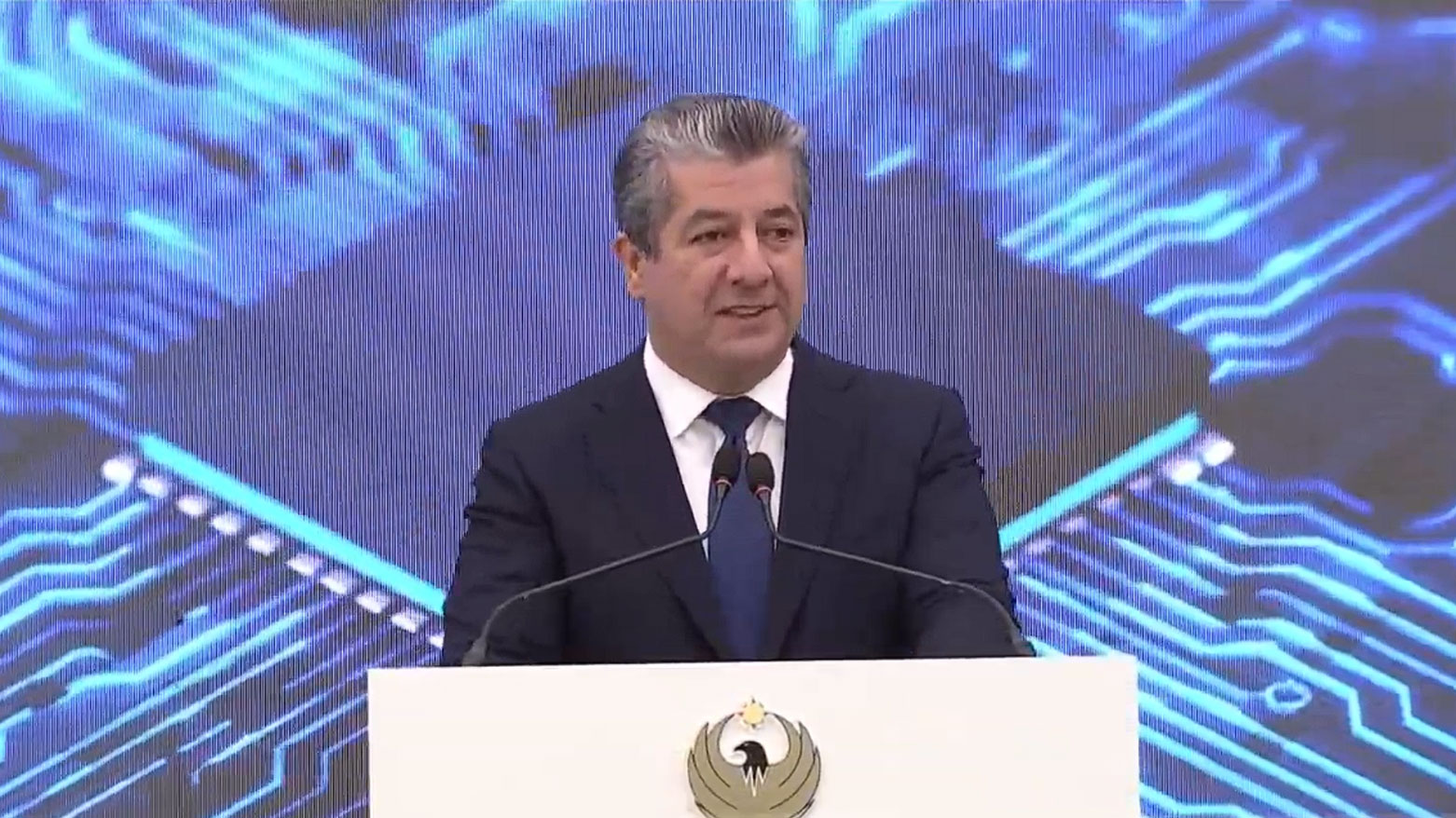PM Barzani Lays Foundation Stone for Second Phase of Erbil’s Major Smartphone Factory
Golden Technology 2 expansion set to double production as the Kurdistan Region pushes forward with its tech-focused economic transformation.

ERBIL (Kurdistan24) — Kurdistan Region Prime Minister Masrour Barzani on Wednesday laid the foundation stone for the second phase of the Golden Technology 2 factory, a major facility dedicated to producing mobile phones and electronic devices, marking another significant step in the Region’s push toward technological self-sufficiency.
According to Bargasht Akreyi, spokesperson for the Kurdistan Regional Government (KRG) Investment Board, the factory had previously operated a production line in Erbil with a monthly output of 40,000 to 45,000 mobile phones, which were exported to neighboring countries and several Arab states, including Syria, Algeria, and Tunisia.
The expansion, he said, will boost the factory’s capacity to 100,000 devices per month, positioning it as one of the largest electronic assembly hubs in Iraq.
Akreyi confirmed that 95% to 98% of the workforce will be local, with only a small number of Chinese engineers participating as part of a joint venture between a Kurdish investor and a Chinese partner.
He added that part of the raw materials for phone manufacturing will be sourced within the Kurdistan Region, while components that require advanced technology will be imported from China and assembled in Erbil before reaching markets in the Kurdistan Region, Iraq, and previous export destinations.
A Sector on the Rise: Technology Emerges as a New Economic Pillar
The launch of Golden Technology 2 comes at a critical moment for the Kurdistan Region, which has been accelerating efforts to diversify its economy after years of dependence on oil revenues and budgetary disputes with Baghdad.
Over the past three years, the KRG has prioritized technology, data infrastructure, manufacturing, and local industry, framing them as strategic sectors capable of creating jobs, stimulating exports, and reducing reliance on imports.
Erbil and Duhok have seen a growing wave of tech investments, including data centers, software development companies, cybersecurity services, smart-card manufacturing, and locally assembled electronics.
The KRG’s Investment Board says that more than a dozen technology-related projects have been licensed since 2023, driven by tax incentives, streamlined registration processes, and the Region’s young, increasingly skilled workforce.
The expansion of mobile phone production in Erbil reflects these broader economic trends. Not only does the factory create thousands of local jobs and introduce advanced manufacturing practices, but it also strengthens the Kurdistan Region’s role in regional technology supply chains.
The decision to export Kurdistani-assembled devices to Middle Eastern and North African markets underscores the Region’s ability to compete beyond its borders.
Economists say such projects mark a tangible shift in the Kurdistan Region’s economic structure — from a consumption-based market importing nearly all electronics, to a more production-capable, export-oriented model that supports long-term economic resilience.
As the Golden Technology 2 project moves into its second phase, officials stress that the goal is not only to meet local demand but also to establish the Kurdistan Region as a regional manufacturing and innovation hub, leveraging strategic partnerships and an experienced labor force to drive the next chapter of economic growth.
We’re growing our industrial sector to diversify Kurdistan’s economy and create more jobs.
— Masrour Barzani (@masrourbarzani) November 26, 2025
This new phone and tablet factory in Erbil will provide 400 jobs and open more opportunities for our people. pic.twitter.com/JTqqCLiNaW